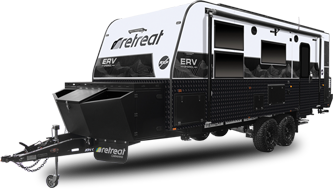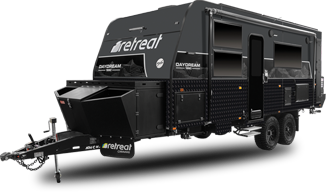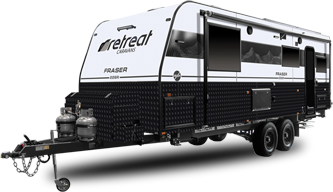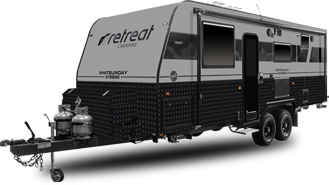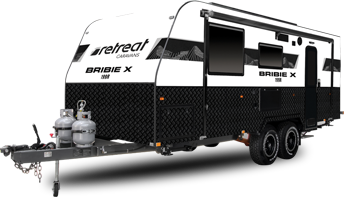
Simplifying Travel: Easy Tips for Off-Grid Caravan Adventures
Off-grid caravan travel gives you the freedom to explore remote places, escape crowds, and enjoy nature at its best. But without access to power, water, and other conveniences, it takes some planning. The right setup, smart packing, and a few key strategies can make the experience smooth and stress-free.
Whether you’re a first-time traveller or an experienced off-grid explorer, these tips will help you stay comfortable, self-sufficient, and safe on the road. Choosing the right vehicle is key, and luxury caravans designed for off-grid travel offer the durability, storage, and power systems needed to handle remote adventures with ease.
Choose the Right Caravan for Off-Grid Travel
Not all caravans are built for off-grid adventures. To travel comfortably, you need a setup that can handle rough terrain and provide essential resources without external connections.
The best off grid caravans have:
- Solar power systems – Keep your batteries charged without relying on caravan parks.
- Large water tanks – Reduce the need for frequent refills in remote areas.
- Lithium batteries and inverters – Store and convert energy efficiently for longer trips.
- Good insulation and ventilation – Keep temperatures comfortable in extreme weather.
- Heavy-duty suspension – Handle rough roads without damaging your caravan.
If you already own a caravan, you can upgrade it with solar panels, extra battery storage, and better water management systems. Investing in the right setup will make off-grid travel easier and more enjoyable.
Master Water Management for Longer Trips
Water is one of the biggest challenges when travelling off-grid. Without easy access to refills, you need to use it wisely.
Here’s how to make your water last longer:
- Use water-saving taps and showers – Install low-flow fixtures to cut down usage.
- Collect rainwater – A simple catchment system can provide extra supply.
- Reuse water when possible – Use dishwater to rinse off gear or flush the toilet.
- Carry extra water containers – Store backup water for emergencies.
- Monitor your usage – Know how much water you have left and plan accordingly.
Many experienced off-grid travellers also install water filters. This allows them to safely use water from rivers, lakes, or other natural sources when needed. Following these steps will help you master the art of off-grid caravanning.
Optimise Power Usage with Smart Energy Solutions
Electricity is another major factor in off-grid travel. Since you can’t plug in at a powered site, you need a reliable energy system to keep lights, appliances, and devices running.
To stay powered up:
- Go solar – A high-quality solar setup provides consistent energy.
- Upgrade your battery system – Lithium batteries last longer and charge faster than traditional options.
- Use energy-efficient appliances – LED lights, 12V fridges, and low-power fans save power.
- Limit high-energy devices – Avoid using hairdryers, microwaves, or kettles off-grid.
- Monitor your power levels – A battery management system helps track usage and charge levels.
With the right energy setup, you can enjoy modern comforts without worrying about running out of power. Before heading off, your ultimate checklist for a seamless off-grid caravan adventure will help you make sure everything is covered.
Plan for Food Storage and Cooking
Keeping food fresh without constant access to shops or power requires some preparation. A well-thought-out approach can save space, reduce waste, and keep meals simple.
Here’s what helps:
- Invest in a quality 12V fridge/freezer – Keeps food fresh without draining your battery.
- Use non-perishable foods – Pack dried, canned, and vacuum-sealed items.
- Pre-cook and freeze meals – Saves time and reduces water usage for cooking.
- Carry a portable gas stove or BBQ – Reliable for cooking when power is low.
- Store food properly – Use airtight containers to keep pests out.
Planning meals in advance ensures you have enough supplies without overloading your caravan. It also reduces waste, making your trip more sustainable.
Stay Safe and Prepared in Remote Locations
Off-grid travel means limited access to emergency services, so preparation is key. A few precautions can make a huge difference in staying safe.
Key safety tips:
- Have a communication backup – A satellite phone or UHF radio keeps you connected.
- Carry a first-aid kit – Include medications, bandages, and emergency supplies.
- Let someone know your plans – Share your route and estimated return time.
- Check weather conditions – Avoid areas prone to flooding or extreme heat.
- Keep recovery gear on hand – Include a tyre repair kit, recovery tracks, and a shovel.
Even experienced travellers can face unexpected challenges. Being prepared means you can handle situations without stress.
Respect Nature and Leave No Trace
Travelling off-grid comes with a responsibility to protect the environment. Following simple eco-friendly practices helps keep remote areas beautiful for future travellers.
Ways to minimise your impact:
- Take all rubbish with you – Leave sites cleaner than you found them.
- Use biodegradable soaps and detergents – Prevent water contamination.
- Stick to designated tracks – Avoid damaging natural landscapes.
- Limit campfire use – Only use fire pits where permitted.
- Respect wildlife – Observe from a distance and never feed animals.
By following these principles, you can enjoy nature while ensuring others can too.
FAQs
1) How do I keep my caravan cool off-grid?
Keeping your caravan cool while travelling off-grid can be challenging, especially in the harsh Australian climate. The best way to stay comfortable is to park in shaded areas whenever possible. Trees provide natural shade, reducing direct sunlight on your caravan and lowering the internal temperature. If shade isn’t available, using a reflective cover on your windows and roof can help deflect heat. Ventilation is also key—keep windows, roof hatches, and vents open to allow hot air to escape.
Installing portable 12V fans can improve airflow inside the caravan. These fans use minimal power and can be positioned to direct cool air where needed. An awning or shade cloth on the sunny side of the caravan will also reduce heat exposure. If you rely on an air conditioner, ensure your caravan has enough solar and battery capacity to run it without draining power. Otherwise, consider evaporative coolers or misting systems that use little energy and provide relief in dry climates.
2) What’s the best way to find free camping spots?
Finding free or low-cost camping spots is easier than ever with modern technology. Apps like WikiCamps and Campendium provide user-generated lists of campsites, rest areas, and remote spots that allow free camping. These apps include reviews, photos, and GPS coordinates, making it easier to decide where to stay. Other travellers often share useful information about accessibility, amenities, and road conditions, helping you avoid surprises.
National parks, state forests, and some council-managed areas also offer free or budget-friendly camping. Check local government websites for designated camping spots, as some may require permits. If you’re looking for a peaceful location away from crowds, explore lesser-known areas through online forums and social media groups where experienced off-grid travellers share their favourite locations.
Before setting up camp, always check local regulations. Some places have strict rules about waste disposal, campfires, or length of stay. Following these guidelines ensures you can continue enjoying these sites while preserving them for future travellers.
3) How much solar power do I need for off-grid travel?
Your solar power needs depend on the appliances and devices you plan to run while off-grid. For basic power needs—charging phones, running LED lights, and using a water pump—a 200W to 300W solar panel setup with a 100Ah lithium battery is sufficient. This setup can handle light usage and short trips.
If you need to power a 12V fridge, fans, or other small appliances, a 400W to 600W solar system with at least 200Ah of battery storage is recommended. This allows for longer stays without external charging. For travellers using induction cooktops, coffee machines, or air conditioning, a more advanced system with at least 800W of solar panels and a high-capacity lithium battery bank is required.
To maximise efficiency, use a battery management system to monitor energy levels. Tilt-adjustable solar panels can also improve charging efficiency by capturing more sunlight throughout the day. By matching your setup to your energy needs, you can stay off-grid for extended periods without worrying about power shortages.
4) What’s the best way to handle waste when off-grid?
Proper waste management is essential when travelling off-grid to keep campsites clean and protect the environment. A portable toilet with biodegradable chemicals or a composting toilet is the best option for managing human waste. These toilets break down waste naturally and eliminate the need for dumping harmful chemicals. Always dispose of waste at designated dump points to avoid polluting natural areas.
For general rubbish, use sealed containers to prevent attracting wildlife. Separate recyclables like cans, bottles, and plastics to minimise waste. Some remote locations have limited disposal facilities, so carrying out what you bring in is the best practice. Food scraps should be stored in compostable bags and disposed of responsibly to avoid leaving a trace.
Greywater (from sinks and showers) should be handled carefully. Use biodegradable soaps and detergents to prevent contaminating natural water sources. Whenever possible, drain greywater into designated disposal areas rather than directly onto the ground. By following these simple waste management practices, you can travel sustainably while keeping the environment pristine.
5) How do I improve mobile reception in remote areas?
Staying connected while travelling off-grid can be difficult, but there are several ways to boost your mobile reception. A signal booster is one of the most effective solutions, as it amplifies weak signals and improves call quality and internet speed. These devices work best in areas with some signal rather than completely dead zones.
For true remote communication, a satellite phone provides the most reliable coverage. Unlike mobile networks, satellite phones work anywhere with a clear view of the sky. They are a valuable backup in case of emergencies, especially when travelling through isolated areas with no service.
Another way to improve reception is to use external antennas. Mounting a high-gain antenna on your caravan roof can enhance your signal by capturing and boosting weak mobile signals. Additionally, positioning your caravan in open areas, away from tall trees or hills, can help improve connectivity. Some visitor centres, roadhouses, and national park facilities also offer Wi-Fi, which can be useful for checking maps, weather updates, and staying in touch.
Ready for Your Next Off-Grid Adventure?
Travelling off-grid in a caravan is an incredible experience when you’re well-prepared. The right setup, smart planning, and a respect for nature make all the difference. With these tips, you can enjoy the freedom of the open road without stress. If you’re looking for the perfect caravan for your adventures, check out Retreat Caravans and start planning your next great escape. See below for our full range of caravans, all carefully designed with you in mind:



